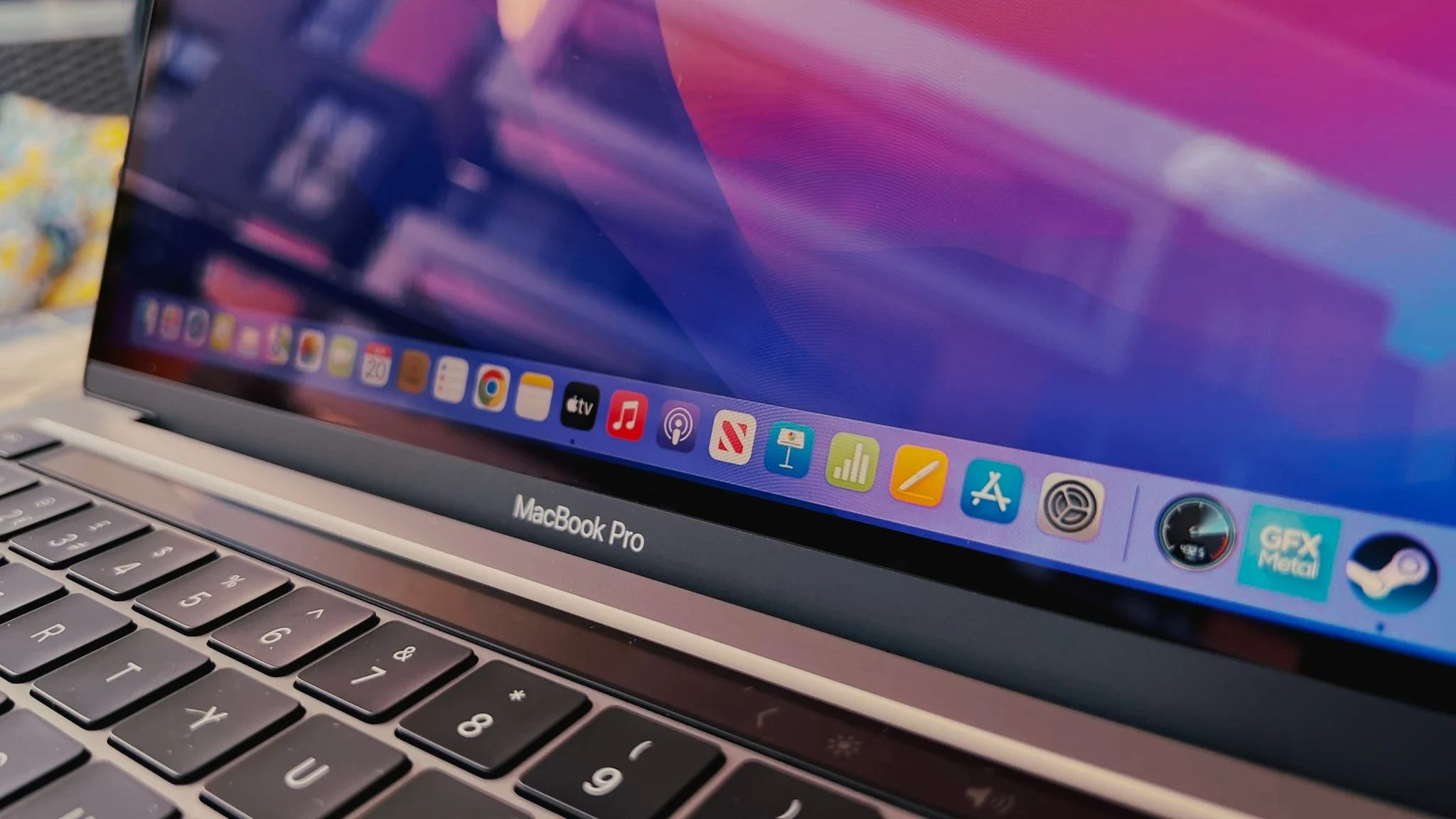M2 MacBook Pro SSD pales in comparison to M1 predecessor and Windows laptops
Apple's decision to put a single NAND chip in base model M2 MacBooks resulted in dramatically slower speeds than competing devices.

All the latest news, reviews, and guides for Windows and Xbox diehards.
You are now subscribed
Your newsletter sign-up was successful
What you need to know
- Apple recently released its 13-inch MacBook Pro which features an M2 processor.
- The base model of the laptop delivers SSD performance that is significantly slower than the M1 MacBook Pro.
- Read and write speeds for the M2 MacBook Pro lag even further behind the best Windows laptops and even PCs that feature slower PCIe3 storage.
Apple launched its M2-powered 13-inch MacBook Pro recently. Reviews of the device have been somewhat mixed. Positive comments focus on the excellent battery life of the new MacBook Pro and its impressive single-core performance. Most negative reviews raise concerns about how the new MacBook Pro will differentiate itself from the upcoming MacBook Air, which also features an M2 processor. There is, however, another concern about Apple's latest laptop, its surprisingly slow SSD.
YouTuber Created Tech tore apart a 13-inch MacBook Pro to find out why the device has such slow read and write speeds. He found that the base model of the device has just a single NAND flash storage chip. In contrast, the base model of the M1 MacBook Pro featured two NAND flash storage chips.
This is one of those cases in which two is better than one. A device with two NAND chips, such as the M1 MacBook Pro, can handle more bandwidth because the chips can work in parallel. Created Tech analogizes this to lanes on a highway. The M2 MacBook Pro having just a single NAND chip effectively creates a bottleneck.
The concept of using two NAND chips in tandem is similar in concept to RAID 0 on Windows, though it's not exactly the same.
Max Tech's Max Yurvey shared SSD benchmarks of the M2 MacBook Pro and compared it to its predecessor in an extensive vs. video. Yurvey also found the base model of the laptop to have just a single NAND flash storage chip.
| Header Cell - Column 0 | M1 MacBook Pro | M2 MacBook Pro |
|---|---|---|
| SSD read speed | 2,900 MB/s | 1,446 MB/s |
| SSD write speed | 2,215 MB/s | 1,463 MB/s |
High-end models of the M2 MacBook Pro, such as the 512GB storage version, have similar SSD speeds to the M1 MacBook Pro, according to MacRumors. As noted by the outlet, shoppers would need to spend at least $1,499 to get the same SSD speeds as those seen in the previous-generation MacBook Pro.
Notably, devices sent out to reviewers under embargo appear to have been higher-end models with two NAND chips.
All the latest news, reviews, and guides for Windows and Xbox diehards.
This is all just on the Apple side of things. When compared to the best Windows laptops — and to be honest, even some average Windows PCs — the new 13-inch MacBook Pro pales in comparison.
This drop in SSD performance is quite dramatic in the new 13-inch MacBook Pro. PCIe4 SSDs in 2022 Windows laptops are on a different level. Even for PCIe3 MBP performance is on the low end as Laptop Go 2 is faster. pic.twitter.com/O3KdBGaM1NJune 28, 2022
The M2 MacBook Pro's read and write speeds are dramatically below high-end Windows PCs like the ASUS ZenBook Pro 14 Duo OLED and MSI GE76 Raider. That's to be expected, as those Windows computers have PCIe4 SSDs. But Apple's new laptop also compares poorly against the Surface Laptop Go 2, which has a PCIe3 SSD like the M2 MacBook Pro.
Apple's use of a single NAND chip is, to borrow a word from our executive editor Daniel Rubino, odd. While the M2 MacBook Pro improves upon its predecessor in some areas, a step backward on the SSD side of things is a strange choice.
Slower SSD speeds can negatively affect overall device performance as well as bog down workflows that require transferring content to an external drive.

Sean Endicott is a news writer and apps editor for Windows Central with 11+ years of experience. A Nottingham Trent journalism graduate, Sean has covered the industry’s arc from the Lumia era to the launch of Windows 11 and generative AI. Having started at Thrifter, he uses his expertise in price tracking to help readers find genuine hardware value.
Beyond tech news, Sean is a UK sports media pioneer. In 2017, he became one of the first to stream via smartphone and is an expert in AP Capture systems. A tech-forward coach, he was named 2024 BAFA Youth Coach of the Year. He is focused on using technology—from AI to Clipchamp—to gain a practical edge.
